Contents
- Top Tips for Feeding Houseplants & FAQs
- The Best Houseplant Fertilisers to Buy (UK)
- The Role of Nutrients (& Their Deficiencies)
Need the answer to a specific fertiliser query? Book a 1-to-1 video call with THE HOUSEPLANT DOCTOR™ to overcome and address your niggling problem! Available on iMessage, WhatsApp, Facebook Messenger & more.
1. Top Tips on Feeding Houseplants & FAQs
What is the best houseplant fertiliser in the UK?
THE HOUSEPLANT DOCTOR™ empathetically recommends is 'Liquid Gold Leaf'. Not only does this product contains all the nutrients (including calcium and magnesium), it also promotes beneficial microbial activity in the soil, too. A 'healthy' soil that contains microbes is extremely important for a houseplant as it'll help uptake nutrients while promoting stronger roots. Most fertilisers only focus on the plant's health, and not the soil's health, so having a product that does both is exceptionally unusual. We sell this product via this link on our website!
How often should I fertilise houseplants?
This depends on the plant, but THE HOUSEPLANT DOCTOR™ has categorised the houseplants into CHANGE distinct groups for you.
- Tropical/Leafy Plants (Monstera, Peace Lilies, Dracaena, Devil's Ivy/Pothos, etc.) This group (which covers around 75% of all houseplants) should be fertilised every third to fourth water, throughout the year. You can use any 'Houseplant' labelled product for this group.
- Cacti & Succulents (Including ZZ Plants, Snake Plants & Aloe vera) Desert dwellers like these don't need feeding often at all. Simply once every three months is enough using a 'Cactus' labelled fertiliser. Organic fertilisers don't work particularly well with Cacti and Succulents, as this type of product needs regularly moist soil to release its nutrients.
- Orchids: Although this group of plants can be happy with any 'Houseplant' labelled product, THE HOUSEPLANT DOCTOR™ recommends using an 'Orchid' labelled fertiliser instead. These feeds contain a more expensive source of nitrogen that the Orchids prefer (compared to generic 'Houseplant' feeds).
- Carnivorous Plants (Venus Fly Traps, Pitcher Plants, etc.) You should never use any fertiliser to feed this group of plants. Instead, keep the Carnivorous Plant outdoors to catch insects that can be 'digested'. The natural sunlight will also provide nutrients to the plant, so using a fertiliser is not needed.
Can I fertilise houseplants too much?
It's also good to know that you can over-feed a houseplant (in terms of how often), which may result in a phenomena called 'nutrient lock'. This occurs when a plant cannot absorb nutrients from its growing medium, even if those nutrients are in the soil. This can lead to nutrient deficiencies and hinder plant growth.
Do I need to mix the houseplant fertiliser with water?
Most indoor plant feeds are meant to be diluted, meaning that you must mix it with water before applying it to the soil. If, however, your chosen fertiliser says 'ready to use' or 'ready to pour' on the label, you can immediately use it without needing to water it down.
Where do I apply a houseplant fertiliser?
Almost all fertilisers should be applied to the soil where the roots will uptake the nutrients. With modern technology in fertilisation, companies now sell 'Foliar Feeds' and misters that can be applied to the leaves. These are great for providing nutrients to the plant, as the plant can absorb them through their leaves as well as their roots!
Are drip feeders any good for houseplants?
Drip feeders are particularly good for smaller plants (in pots narrower than 15cm), as they can provide nutrients to all corners of the potting mix. However, for larger pots, this is less effective as the solution can't travel deep enough where the roots inhabit.
Drip feeders can be re-used and filled with water to hydrate plants while you're away on holiday though. It's a good way to have piece of mind that you won't come home to a shrivelled up plant!
Do I actually need to feed houseplants?
Yes! Although houseplants can survive for a few years without fertilisation, they can become weak and grow slower over this period. Cacti & Succulents can survive without feed for many years before showing signs of ill health though.
2. The Best Branded Products to Buy (UK)
Are all houseplant fertilisers as good as each other?
This is what we get asked all the time. Some fertilisers are indeed better than others, but all will provide a good level of nutrients for your plants and are great for casual growers.
If you really want to go the science of fertilisation, try opting for a product that contains all the micro and macronutrients, along with containing both calcium and magnesium. The latter two nutrients are hard to store together in a solution (as they'll react), so if a fertiliser has achieved this, they've done extensive research into their products!
What is the best product that'll feed ALL of my houseplants?
As THE HOUSEPLANT DOCTOR™ recommends above, the best fertiliser for this year is definitely 'Liquid Gold Leaf'. This will fertilise all of your houseplants, including tropicals, cacti/succulents, Orchids and terrariums. The only plants you should fertilise at all (with any product) are carnivorous plants as they don't require it. You rarely find LGL in physical shops, so have a look online here to buy it.
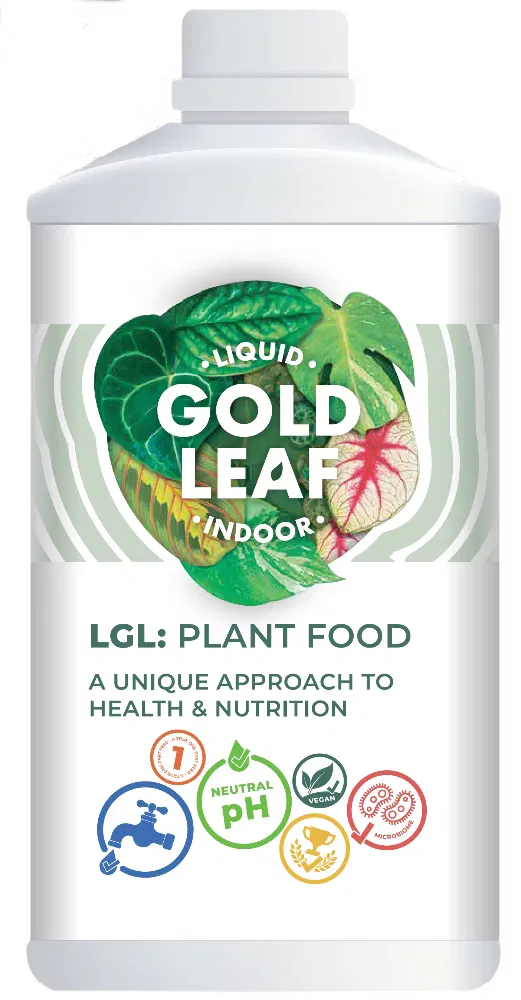 The best fertiliser for houseplants currently on the market due to its benefits of plant and soil health.
The best fertiliser for houseplants currently on the market due to its benefits of plant and soil health.
Are there any other houseplant fertilisers I could buy?
Of course! The best all-rounder is the LGL, but the following fertilisers below will also provide essential nutrients to your indoor plants. You can find these products at all garden centres across the UK.
What which is the best fertiliser for my houseplants for all houseplants ?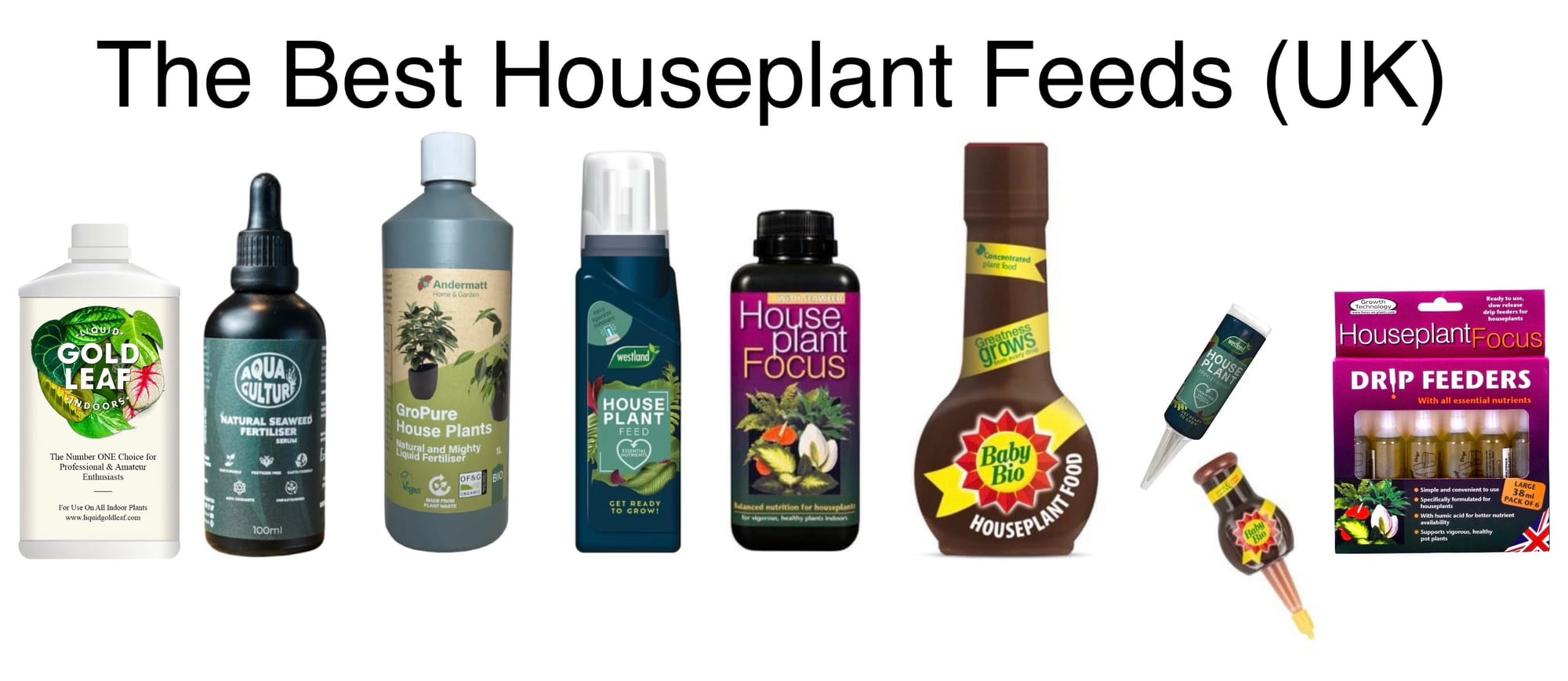
Recommended Houseplant Fertilisers (Right to Left): LGL, AquaCulture, Andermatt, Westland, Houseplant Focus, BabyBio.
Houseplants That Bloom Periodically
Plants that are predominantly grown for their foliage (like Peace Lillies) may flower from time to time. Although a general 'Houseplant' labelled feed will still aid this process, you may want to consider something that's higher in potassium like a 'Tomato' labelled fertiliser. You can also use products like 'Liquid Gold Leaf Photo+' to help houseplants flower, which is applied by misting the foliage (instead of applying it in the soil).
What which is the best fertiliser for my cacti and succulents? 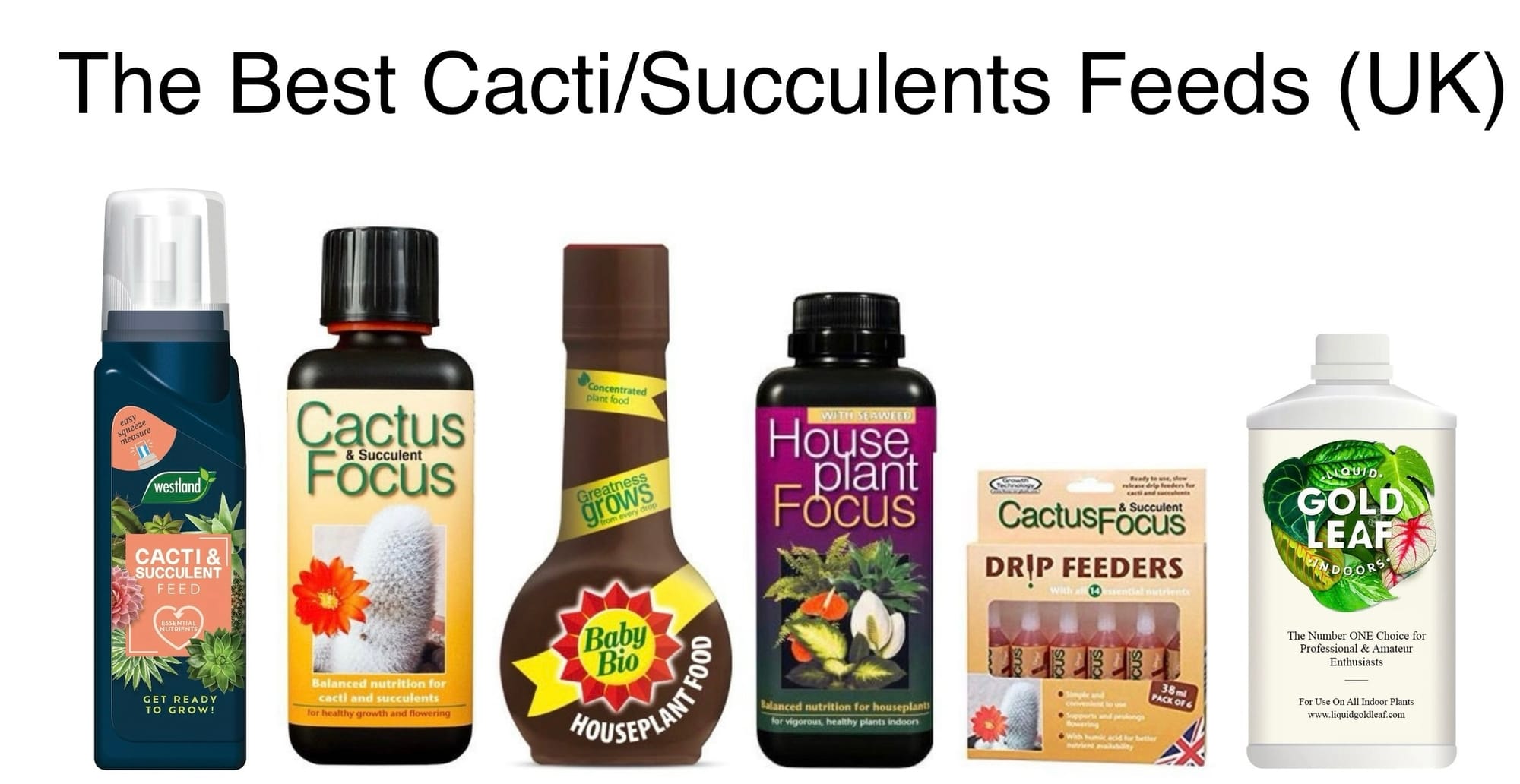
Recommended Cacti & Succulents Fertilisers (Right to Left): Westland, Cactus Focus, BabyBio, Cactus Focus Drip Feeders, BabyBio Drip Feeders, Liquid Gold Leaf.
Cacti & Succulent Fertilisers
You have an option to choose either a Cactus & Succulent-labelled fertiliser or a generic 'Houseplant' product, as both will perform well. The only difference between the two is that 'Cactus & Succulent' products will learn towards potassium, whereas 'Houseplant' products will provide more nitrogen (foliage). THE HOUSEPLANT DOCTOR™ recommends Growth Technology's Cactus Focus, as it allows for all of the nutrients in the correct proportion, with being much cheaper than other products.
Extra Tip: Avoid using 'organic' fertilisers as these won't perform well with Cacti or Succulents!
What whi
What which is the best fertiliser for my orchids? Moth orchid, dendrobium cattleya cymbidium vanda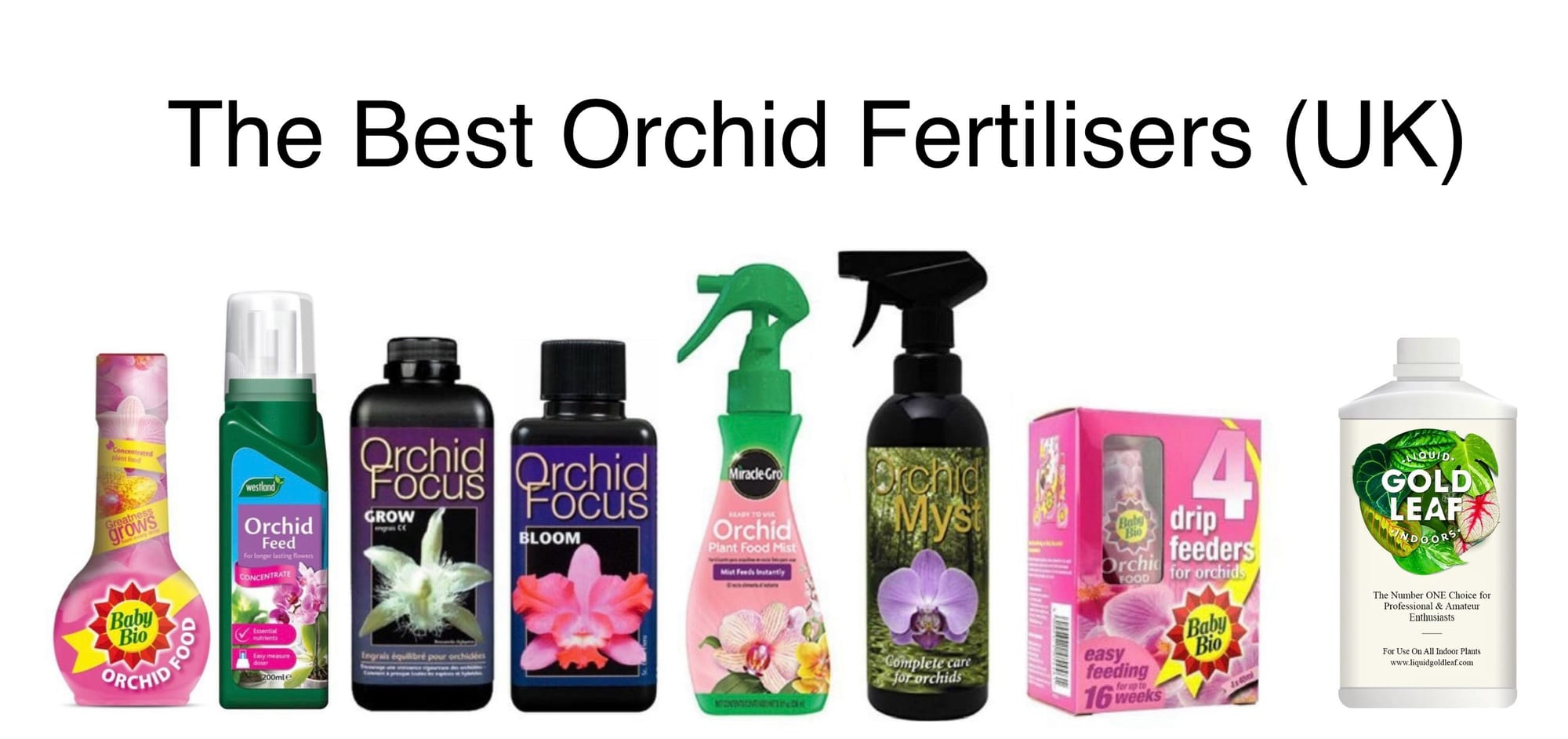
Recommended Orchid Fertilisers (Right to Left): BabyBio, Westland, Orchid Focus Grow, Orchid Focus Bloom, Miracle-Gro Orchid Spray, Orchid Myst, BabyBio Drip Feeders, Liquid Gold Leaf.
Orchid Fertilisers
THE HOUSEPLANT DOCTOR™ recommends purchasing a concentrated bottle over a few drip feeders, as it'll be cheaper and will last longer. Foliage misters are also highly popular among Orchid growers, as it'll improve the health and vigour of the leaves by directly providing them nutrients. THE HOUSEPLANT DOCTOR™'s recommended product is 'Orchid Focus ' due to it containing a more expensive source of nitrogen that'll help your Orchids thrive. It's also available at all garden centres.
ch is the best fertiliser for my bonsai tree indoors? ficus retusa microcarpa carmona
What is the best fertiliser indoor for bonsai tree trees plants plant UK England where can I buy my
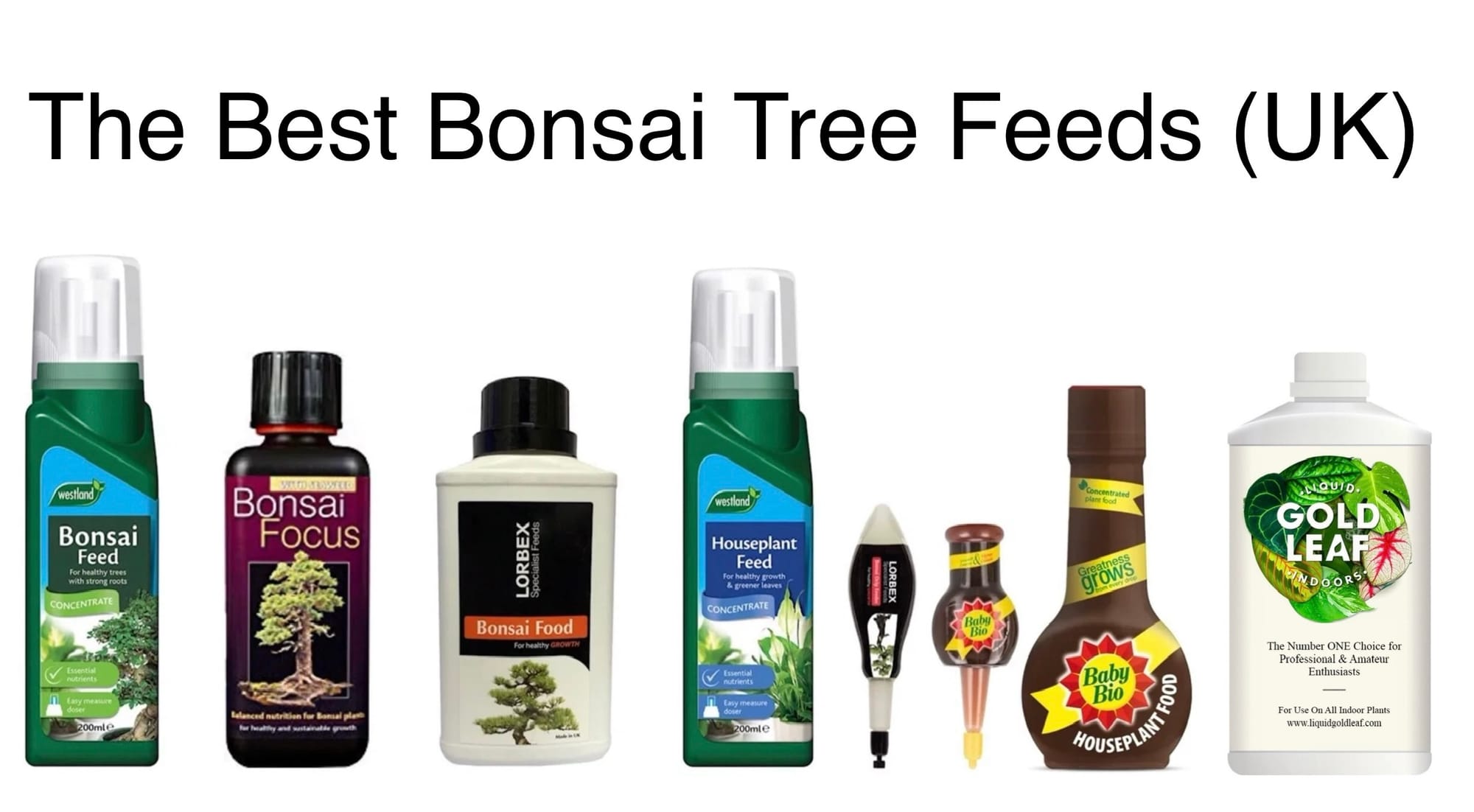
Recommended Bonsai Tree Fertilisers (Right to Left): Westland Bonsai Feed, Bonsai Focus, Lorbex Bonsai Food, Westland Houseplant Feed, BabyBio, Liquid Gold Leaf.
Bonsai Tree Fertilisers
Although it'll be great to purchase a Bonsai-labelled product, a general 'Houseplant' fertiliser will do the job, too. THE HOUSEPLANT DOCTOR™ recommends 'Bonsai Focus' as it provides the correct levels of nutrients for solid foliar and root development.
Are drip feeders good for Bonsai Trees?
Dehydration is the most common way to kill a Bonsai tree, so using a drip feeder is excellent at providing vital nutrients and overall soil moisture.
What which is the best fertiliser for my citrus tree orange lemon lime satsuma kumquat ? mandorin 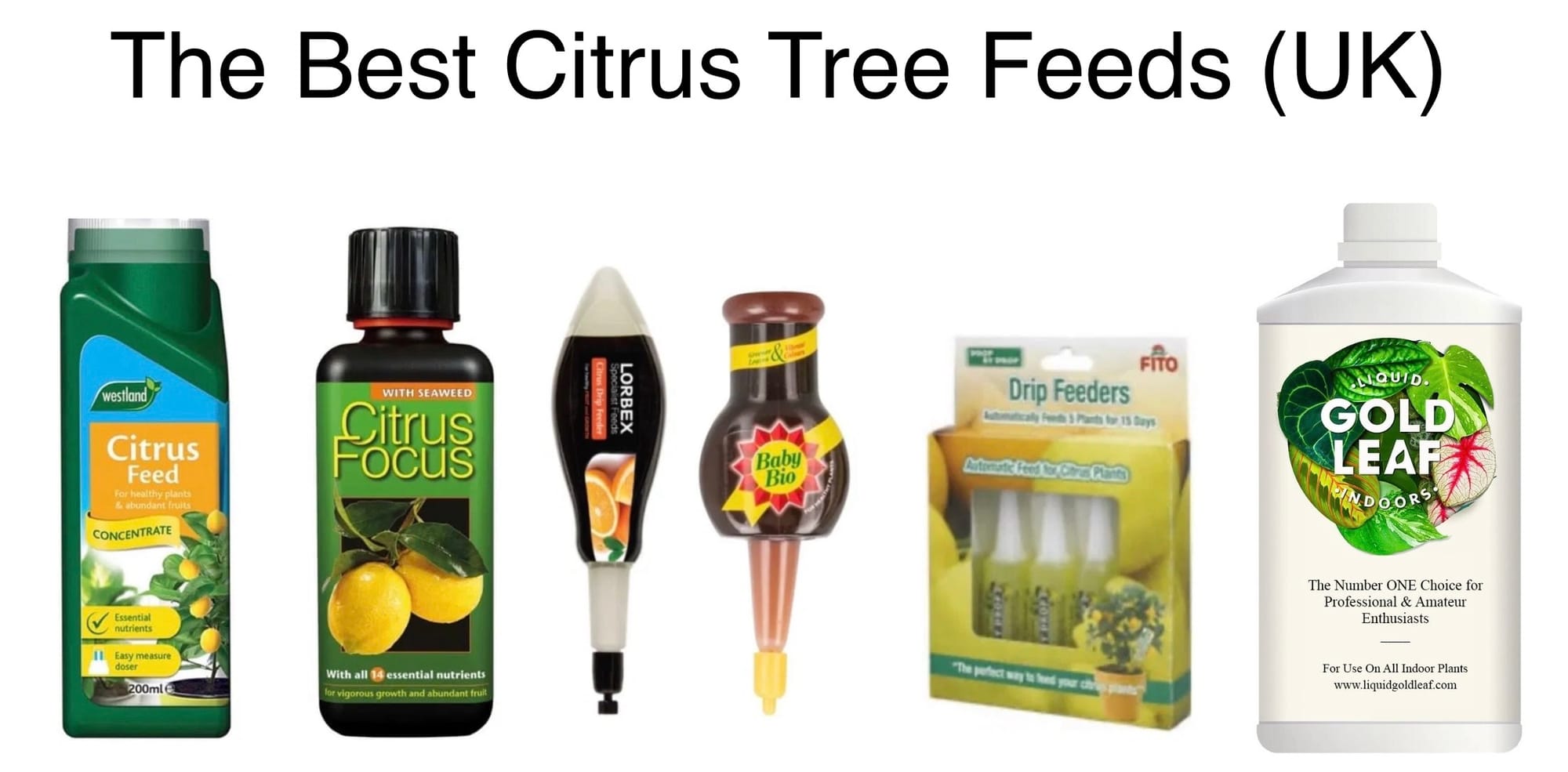
Recommended Citrus Tree Fertilisers (Right to Left): Westland CitrusFeed, Citrus Focus, Lorbex, BabyBio, Fito & Liquid Gold Leaf.
Citrus Tree Fertilisers
For successful flowers and fruit, you should opt for a fertiliser high in potassium. There are many options to choose from at a standard garden centre, but we'd recommend 'Tomorite's Concentrated Tomato Food' as it favours potassium over nitrogen. If, however, you have a leftover box of 'Sulphate of Potash' at home, now is the time to use it - just follow the guidelines for application and halve the recommended dilution strength to avoid burning the roots!
What Are The Best Organic Fertilisers for Houseplants?
Are organic feeds good for houseplants?
Positives: Organic fertilisers will promote better microbial activity in the soil, which will encourage healthier roots and leaves. They will fertilise the plant eventually.
Negatives: It takes around two months for organic fertilisers to 'work' within the soil. They are packed with organic matter which isn't available for the plant to uptake initially; the soil has to breakdown the fertiliser content to make it 'bio-available' for the plant to take-up. Think of it like a frozen ready meal from the freezer - we have to put it in the oven to be edible for us. In the plant's situation, the soil acts like the 'oven' converting the fertiliser into 'edible' food for the roots.
Should I use an organic fertiliser for my houseplants then?
If you're wanting to improve the soil's health, THE HOUSEPLANT DOCTOR™ would recommend using something like Liquid Gold Leaf. This will encourage better microbial activity in the soil, while still fertilising the plant, too. Organic fertilisers are fantastic for outdoor plants (especially in the ground), but may not be the best companion to houseplant care. They will still provide nutrients to the plant though.
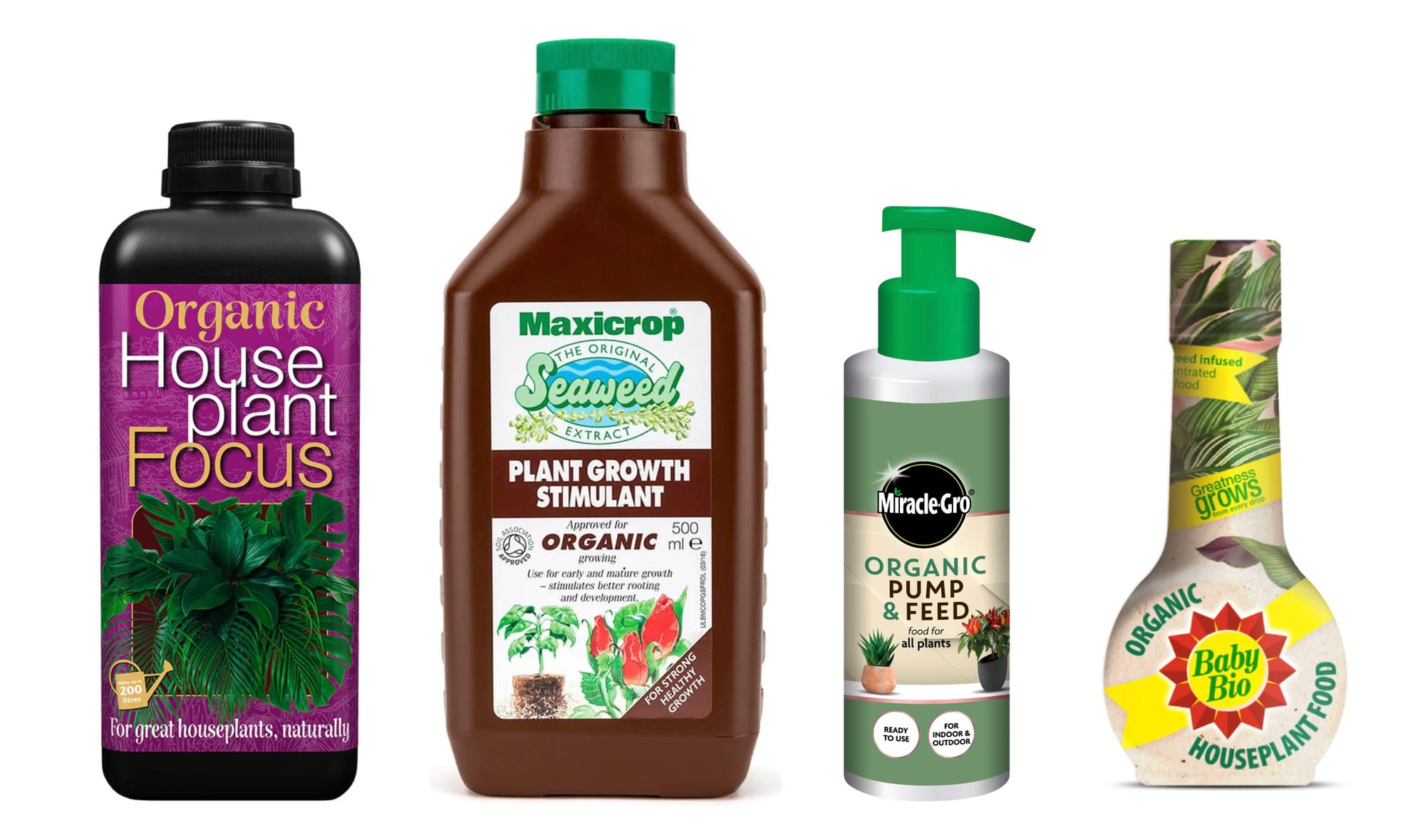
The Best Houseplant Organic Fertilisers (Right to Left): Organic Houseplant Focus, Maxicrop Seaweed, Miracle-Gro Pump & Feed, BabyBio Organic Food. .
3. The Role of Nutrients
Plants need a balanced diet of thirteen primary nutrients for quality growth over a season. A deficiency of one or more nutrients will cause many issues, including lowered rates of photosynthesis, susceptibility to pests or diseases, and a gradual decline of health. Although there are three main elements (macronutrients), N, P & K, plants require a varied and balanced amount of each trace elements to become well-nourished. Have a look at the basic functionality of each nutrient below, and what it does within the plant!
Nitrogen (N) - Aids the establishment and greening of leaves.
Phosphorus (P) - Stimulates root development and the resistance of diseases.
Potassium (K) - Stimulates the flowering process, and can harden certain species from frosts.
Calcium (Ca) - Compliments the development of roots and encourages seed production.
Magnesium (Mg) - Aids the uptake of phosphorus and other nutrients through the roots.
Sulphur (S) - Stimulates root and nodule production.
Iron (Fe) - Mandatory for the formation of chlorophyll and protein synthesis, along with being a macronutrient for acidic soils.
Manganese (Mg) - Development of chlorophyll.
Zinc (Zn) - Better regulates the plant's hormones, including chlorophyll & auxin.
Copper (Cu) - Aids respiration.
Boron (B) - Compliments the absorption of nitrogen and cellular division.
Molybdenum (Mo) - Essential for nitrogen-fixing organisms.
Chlorine (Cl) - Aids photosynthesis.
• Most nutrients within the plant aid the development or regulation of chlorophyll, which is the 'engine' of photosynthesis. Situating a plant in a dark location with little fertilisation will significantly reduce its ability to convert light energy into sugars, thus weakening the overall health.
• Over-supplementation will have its negatives too, in the likes of root-burn, yellowing leaves and elongated growth. Fertiliser salts will begin to build-up in the soil, creating an imbalance that can lead to a depressive plant. If it's felt that you've given the plant too much 'love', soak the soil to allow the excess moisture and chemicals to drain from the roots freely.
• The compost's pH will significantly govern which nutrients are retained in the soil. A 'neutral' reading of 7 will hold the most nutrients, whereas acidic soils (below 6) will cause many of them to leach-out, except for iron, manganese and boron. Acid-loving plants, like Azalea or Rhododendrons, will require large quantities of the nutrients to function adequately. Although knowing your houseplants' pH score isn't overly critical, excessive use of tap water will slowly turn the soil too alkali (over 7), that is highly detrimental to certain species.
• Fertilising your houseplants too often (more than the recommended dosage/frequency) may cause dehydration symptoms like leaf-curling, yellowed leaves and wilting. Try pouring lukewarm water into the soil for around five minutes to filter out the excess fertiliser salts and nutrients.
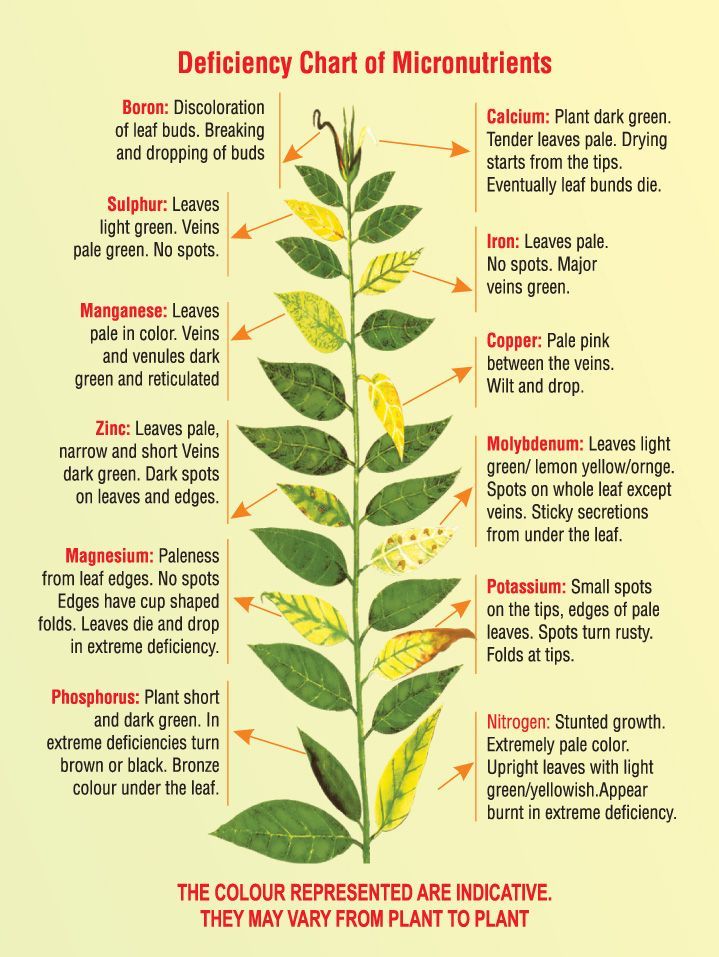 Nutrient Deficiency Symptoms. Copyright: groACE.com
Nutrient Deficiency Symptoms. Copyright: groACE.com
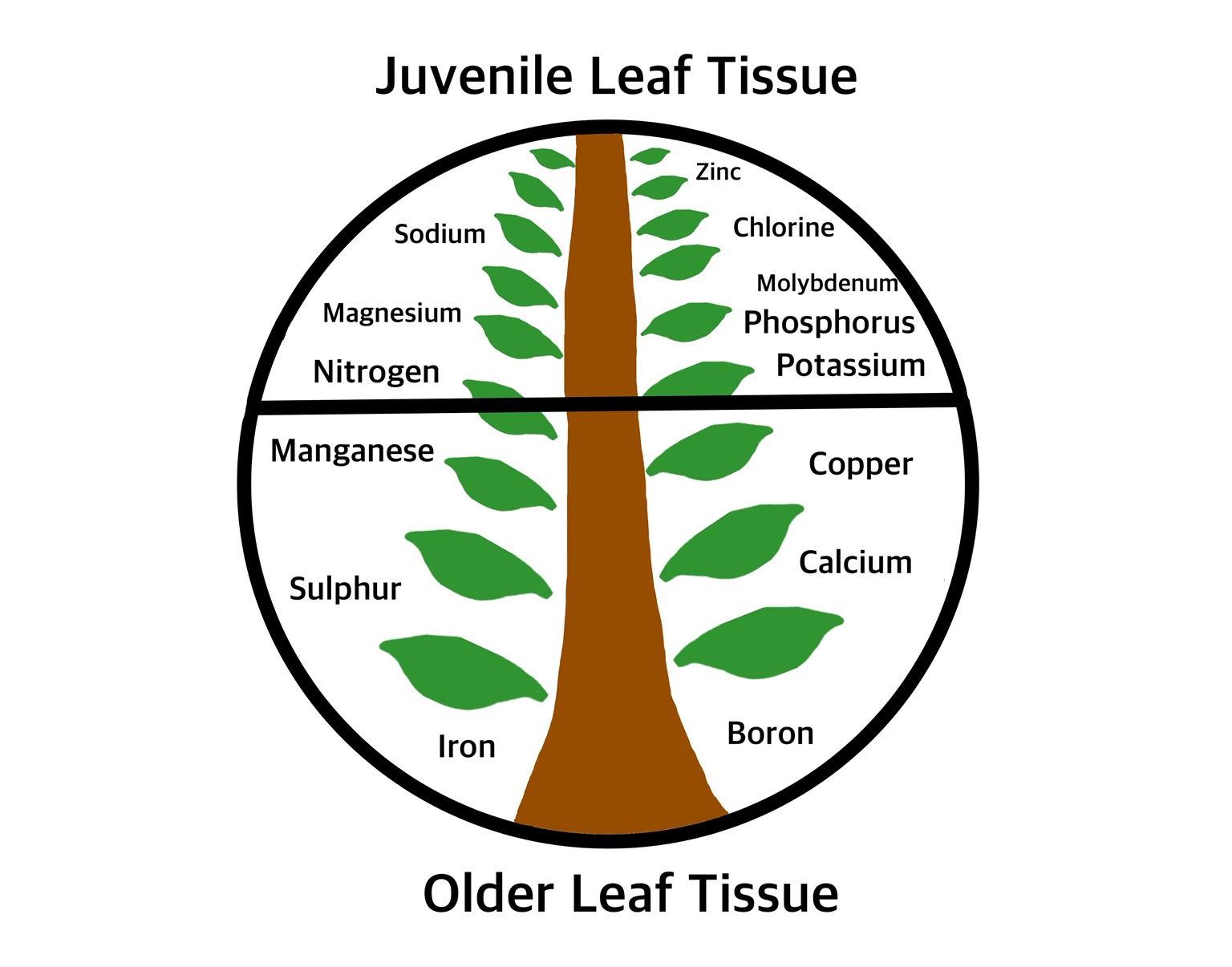 Nutrients are either mobile or immobile, which is why deficiency symptoms only occur in certain areas of the plant.
Nutrients are either mobile or immobile, which is why deficiency symptoms only occur in certain areas of the plant.
Example: A nitrogen deficiency will become visual in the yellowing older leaves, as it is mobile and therefore can be moved to the new growth.
Book a 1-to-1 Consultation with THE HOUSEPLANT DOCTOR™
Need realtime advice for your houseplant potting mixes? Book a video or message consultation with expert Joe Bagley, THE HOUSEPLANT DOCTOR™ (author or ukhouseplants.com). Choose between a ten or thirty-minute session & a platform of your choice (WhatsApp, FaceTime, Facebook Messenger or Zoom). Ask unlimited questions in one session, including queries on your dying/challenging plants, pests eradication, terrariums, repotting advice & everything in between! Available worldwide.